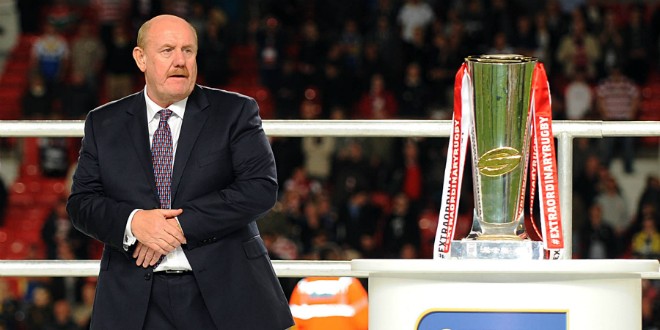 A week last Tuesday I attended the All Party Parliamentary Group Dinner in the House of Lords.
It was an enjoyable occasion, with speeches from various people, including RFL chief executive Ralph Rimmer. It was a very pleasant evening, with the Parliamentarians handing out their own Rugby League awards, which were highlighted in last week's Leag
A week last Tuesday I attended the All Party Parliamentary Group Dinner in the House of Lords.
It was an enjoyable occasion, with speeches from various people, including RFL chief executive Ralph Rimmer. It was a very pleasant evening, with the Parliamentarians handing out their own Rugby League awards, which were highlighted in last week's Leag Can the RFL govern Rugby League?
 A week last Tuesday I attended the All Party Parliamentary Group Dinner in the House of Lords.
It was an enjoyable occasion, with speeches from various people, including RFL chief executive Ralph Rimmer. It was a very pleasant evening, with the Parliamentarians handing out their own Rugby League awards, which were highlighted in last week's Leag
A week last Tuesday I attended the All Party Parliamentary Group Dinner in the House of Lords.
It was an enjoyable occasion, with speeches from various people, including RFL chief executive Ralph Rimmer. It was a very pleasant evening, with the Parliamentarians handing out their own Rugby League awards, which were highlighted in last week's Leag 